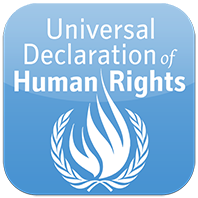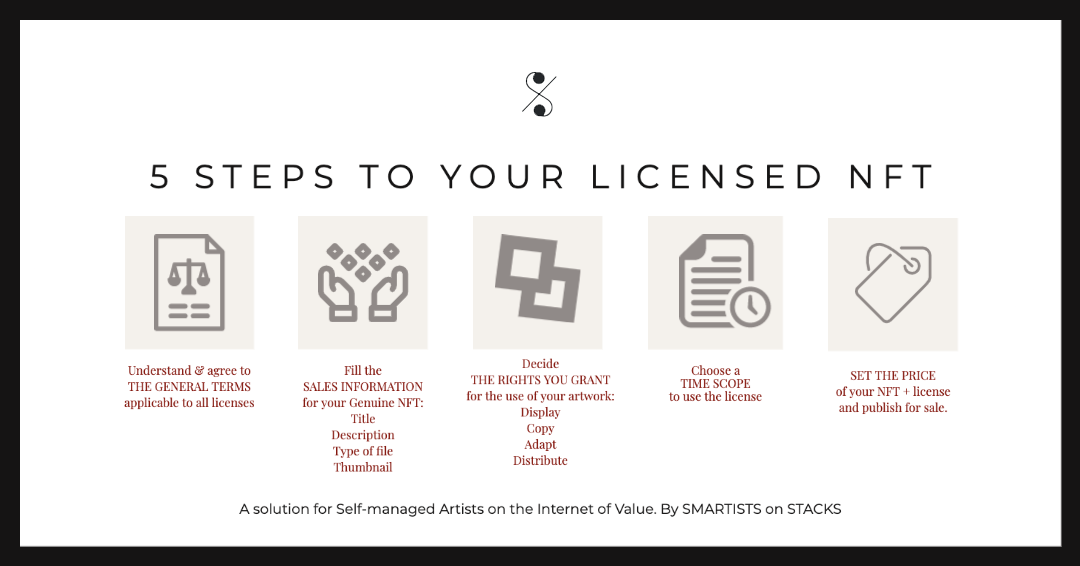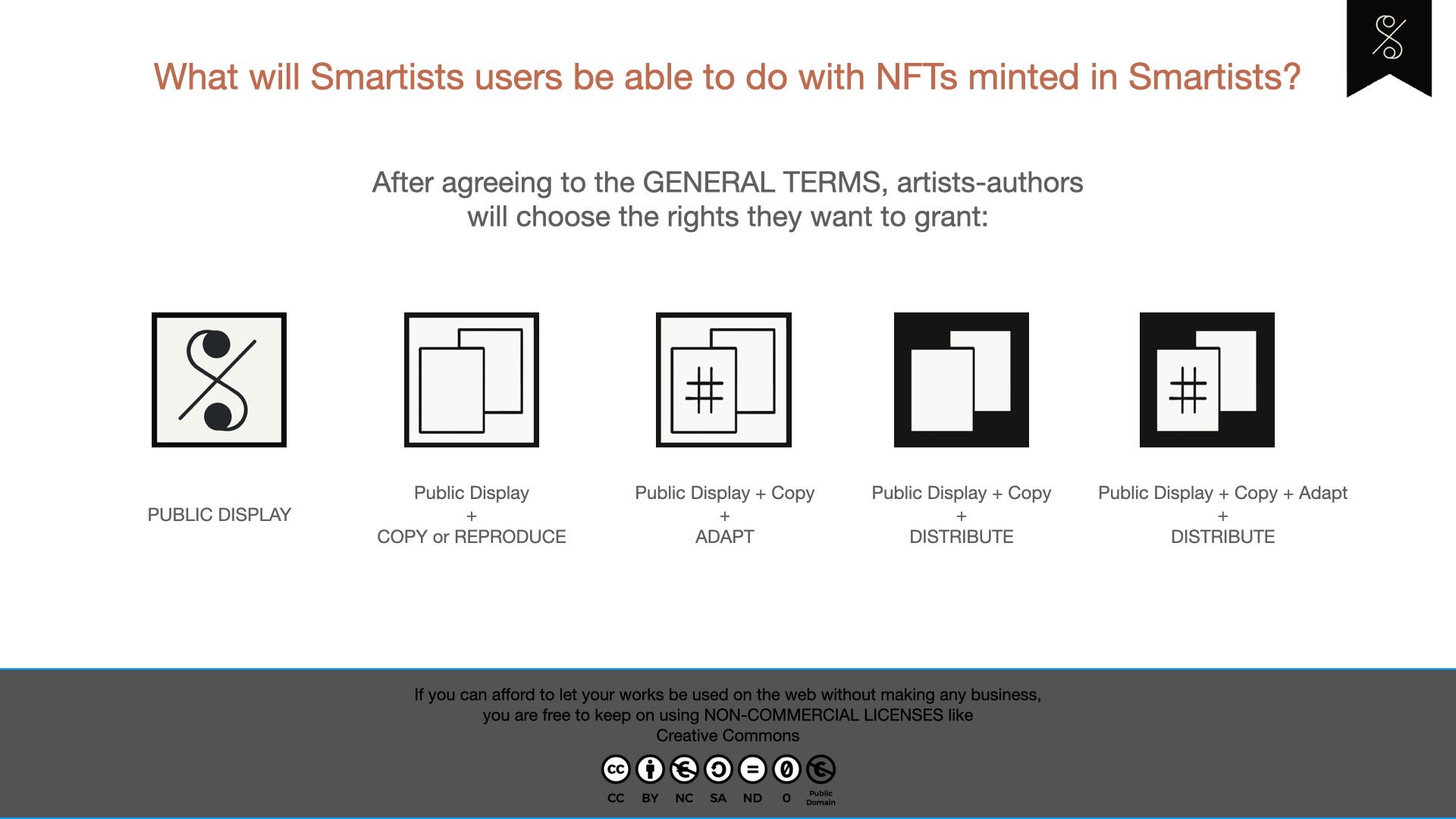
Sep 12•6 min read
The Smartists Licenses for NFTs - by Georgina Mauriño
NOTE.
This is a very first introduction to the Smartists Copyrights Licensing System for NFTs by Georgina Mauriño. First Published in February 2022.
The text was intended to present our work to the Smartists community and those interested in the Stacks community too. This presentation was followed by an A. M. A. So, if, after this reading, you have any questions of your own, please contact with the speaker, Georgina Mauriño, on her LinkedIn, mentioning this article.
................
My name is Georgina Mauriño, Spanish writer and illustrator, working with classical musicians since 1997. I am also the founder of Smartists, a dApp bringing solutions for self-managed artists on the web3. After High School at the Lycee Français in Barcelona, during four years I attended the University of Barcelona for an Undergraduate Diploma in Law Studies. I want to point out that I am not a lawyer, and that for the Smartists project I have been working closely with a Legal Counsel as well as consulted with several specialists and advisors. For Blockchain tech, I started my research and self-education in 2017. You can find more professional details about me
on LinkedIn.
[Now, let me share the screen to address some F. A. Q. which can set the framework of the following questions.]
What is exactly Intellectual Property?
According to the World Intellectual Property Organization

"Intellectual Property (IP) refers to creations of the mind, such as inventions; literary and artistic works; designs; and symbols, names and images used in commerce. IP is protected in law by, for example, patents, copyright and trademarks, which enable people to earn recognition or financial benefit from what they invent or create…
Copyright is a legal term used to describe the rights that creators have over their literary and artistic works. Works covered by copyright range from books, music, paintings, sculpture and films, to computer programs, databases, advertisements, maps and technical drawings."
What rights does copyright give me? What are my rights as author of a work?
There are two types of rights under copyright: economic rights, which allow the rights owner to derive financial reward from the USE of their works by others, and moral rights, which protect the non-economic interests of the author.
Moral rights refer to authorship and cannot be transferred. Economis rights need to be managed expressly by the author who by default always retains ownership. This economic rights consist in the four essential uses of the artwork that can derive compensation for the creator: PUBLIC DISPLAY, COPY or REPRODUCTION, ADAPTATIONS or making derivatives, and DISTRIBUTION.
Why do copyrights matter on the web3?
In the physical world, Intellectual Property is a fundamental human right, limited only by other human rights.

U.N. Declaration of Human Rights. Article 27 - Everyone has the right to the protection of the moral and material interests resulting from any scientific, literary or artistic production of which he is the author.
Related articles are those about Freedom of Opinion and Expression, Right of Education, Health…
Accordingly, in the W. I. P. O. 's definition of Intellectual Property we find these words: “… By striking the right balance between the interests of innovators and the wider public interest, the IP system aims to foster an environment in which creativity and innovation can flourish.”
Such declarations and legal definitions are actually the result of centuries of fight for a more dignified human life. It is a wonderful achievement for our human relations. They say that fundamental rights are those that we take for granted until we are deprived of them... Think of Privacy, of Freedom of Speech, etc.
Now, in the In digital world, who defends our rights? Find the best answer to this question in Larry Salibra´s video.
After watching the video, it gets pretty clear how important is for developers on the web 3 to consider the defense of fundamental rights when working in their solutions.
Do NFTs marketplaces address copyrights management? How?
Some do and some don't. Those who do, address this matter in different ways depending on the type of market -open, curated, or private-, and also depending on their business models where sales in secondary markets sometimes play important roles.
You can find a great comparison about all this in this article by James Gatto and Molly Tomer (Sheppard Mullin) published in the National Law Review "NFT License Breakdown: Exploring Different Marketplaces and Associated License Issues".
Smartists is intended not as an NFT marketplace, but as a Software as a Service WebApp. Therefore, we are not just addressing copyrights management in our terms of service, we are instead explaining how the management can be overtaken by the users themselves.
Is Licensing the same as Selling copyrights?
Of course not!
Selling copyrights means a total transfer of ownership while Licensing copyrights lets the author keep the ownership of this rights and just grant certain rights under certain conditions as well as setting some limitations. This is what we call the Licensing Terms.
Remember that Intellectual property rights need to be expressly managed by the author, and also that Licensing terms need to be agreed expressly by the Licensee.
Smartists copyrights licenses for NFTs. An overview.
We are addressing the management of economic rights, (which allow the rights owner to derive financial reward from the use of their works by others) included in the art works minted as NFTs.
Some GENERAL TERMS apply to all Copyrights Licenses and are included in the Terms of Service for NFTs private sales. Most important General Terms included: Licensor declares to be the copyrights holder entitled to manage the copyrights, attribution is always due, technical procedure and legal framework…

Some SPECIAL TERMS apply to every Copyrights License depending on the choices of the NFT creator/ licensor: Rights granted, License Duration…

If you can afford to let your works be used on the web without getting any compensation, you are free to keep on using NON-COMMERCIAL LICENSES like Creative Commons. But if you are a planning to make business with your Intellectual Property/copyrights on the web, you may be interested in following what we are doing at Smartists.
Actually we are grateful to CC licenses in the past years for proving that a Licensing system based in icons can work on the web and be recognized in court. Practically they are the first 'automated digital licensing' functioning on the web. The only downside is they are not commercial and don't enable professional artists to make business with their creations. Now, it is time to bring commercial licenses to the web3, the Internet of Value, the Internet of Business.
Do you want to know more?... Join the Smartists Discord Server or sign up to the Smartists newsletter. Or you can also connect with Georgina Mauriño on LinkedIn with a private message mentioning this article.
Thank you for reading Towards The Internet of Value!
